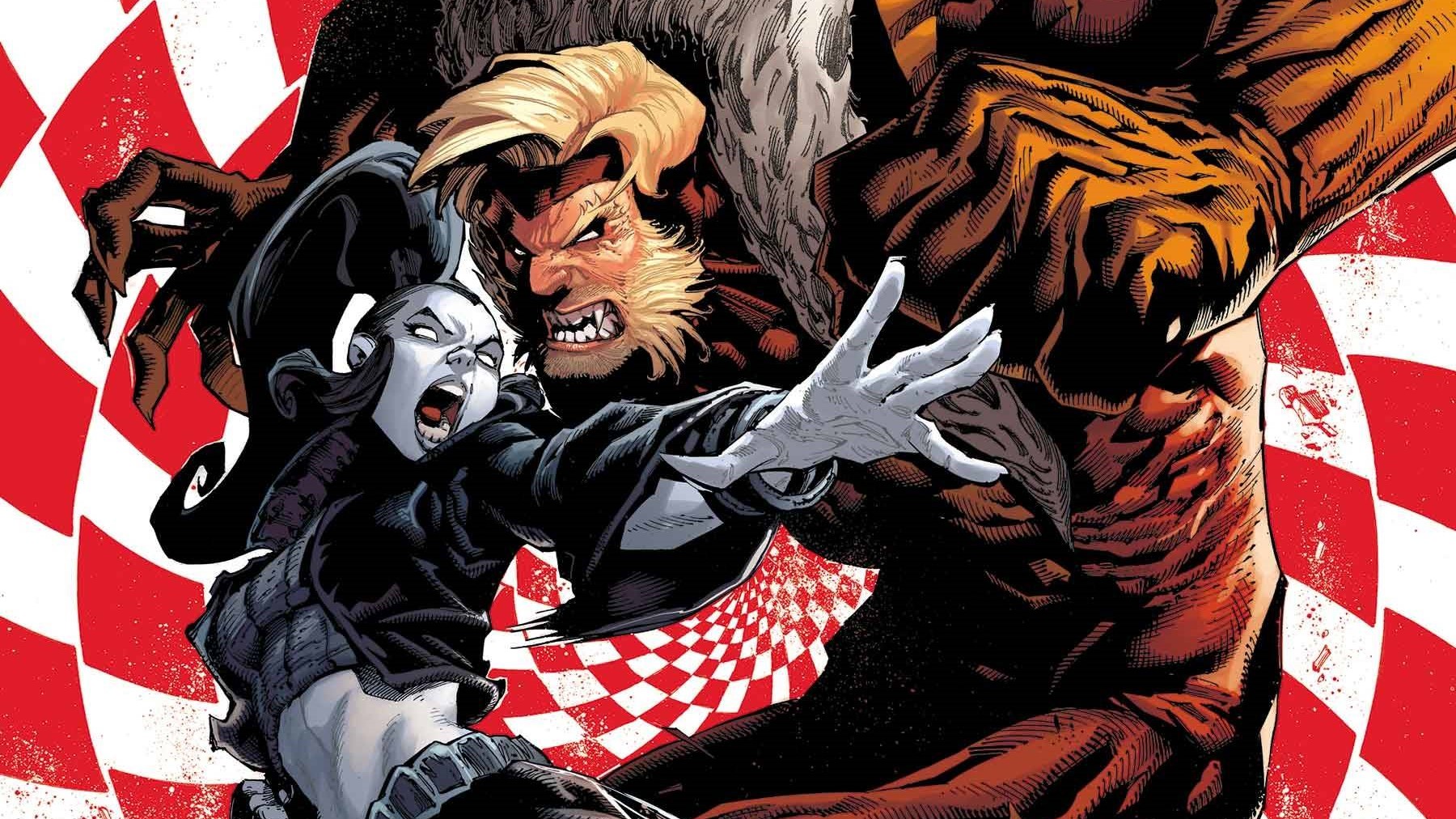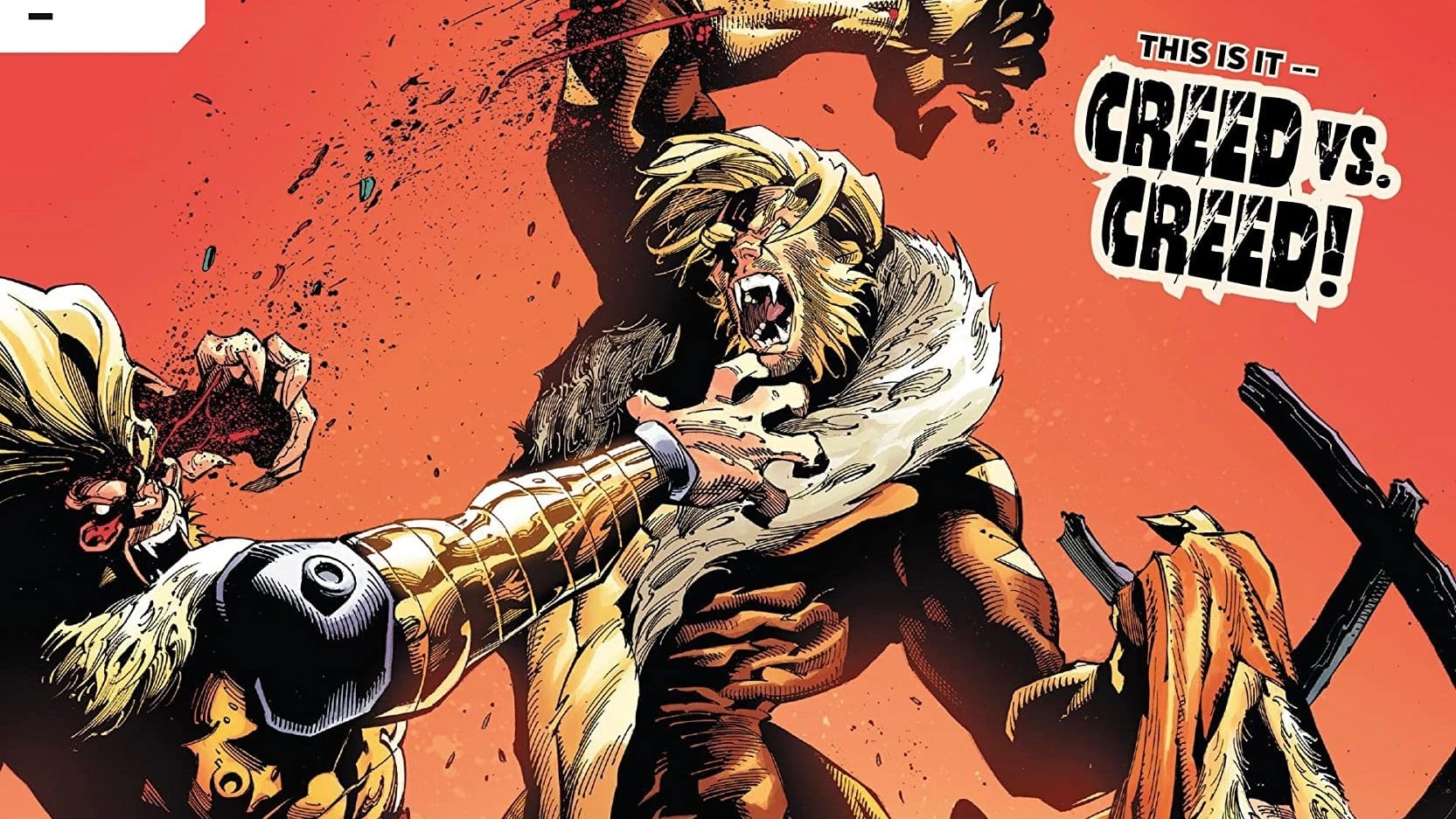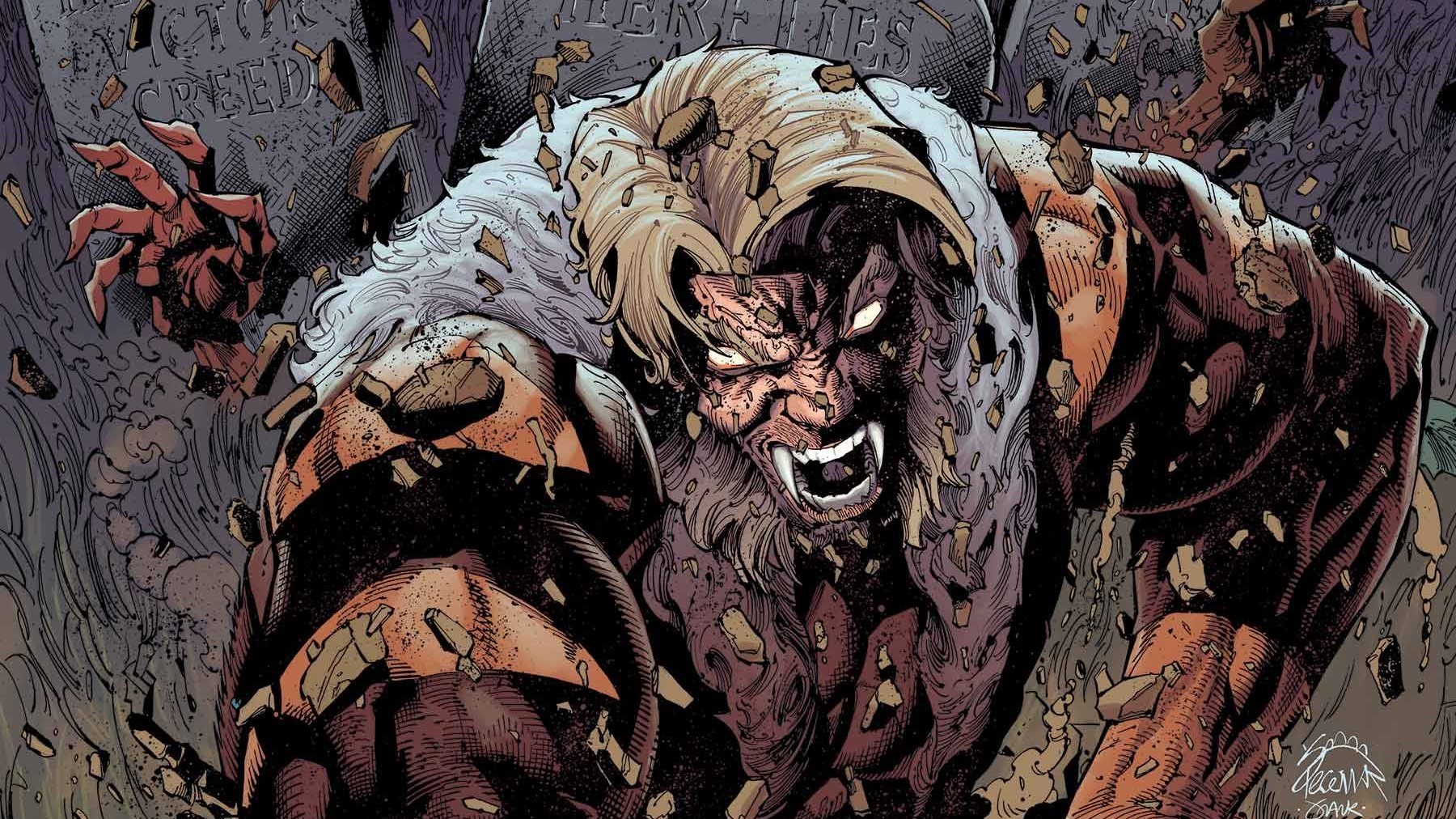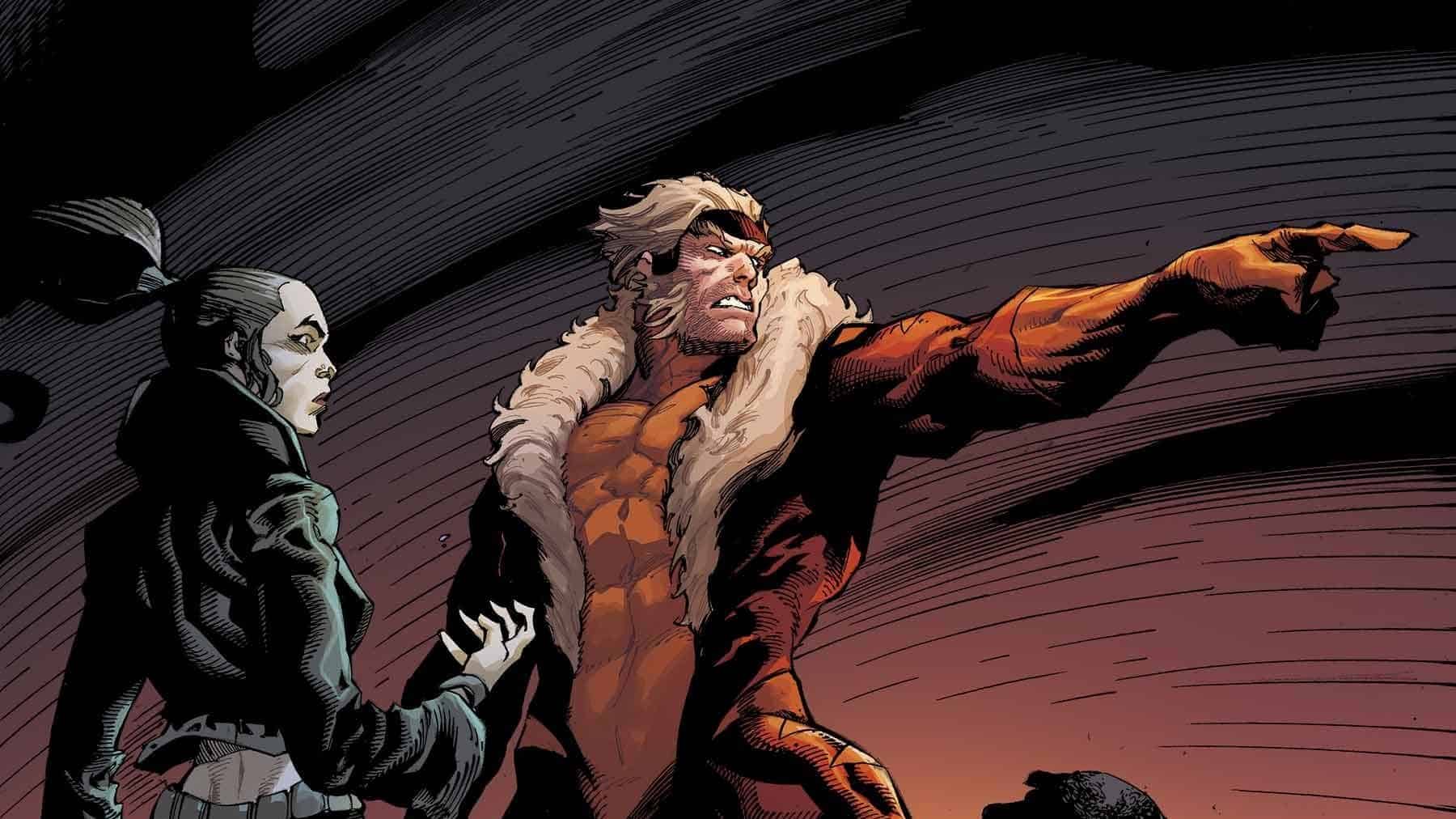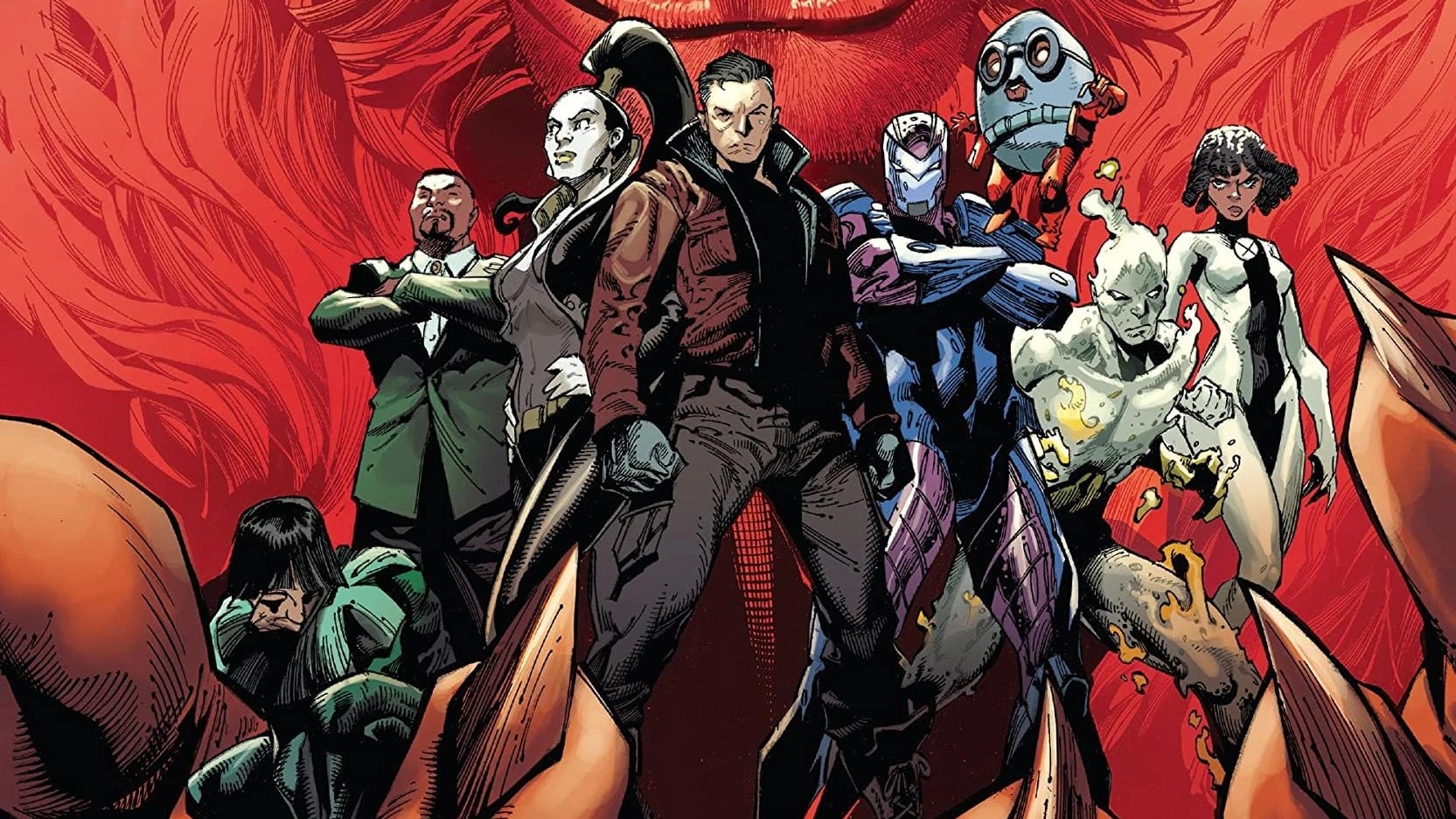Sometimes, someone’s body is a bomb and you need an out-of-body experience to save everybody from going ka-boom. High stakes and grounded metaphors keep us anchored in the Astral Plane in Sabretooth and the Exiles #3, written by Victor LaValle, drawn by Leonard Kirk, colored by Rain Beredo, and lettered by Cory Petit.
Jude Jones: Charles Xavier is a bad, bad man. This, of course, isn’t news to anyone with more than a cursory knowledge of X-Men lore. The list of crimes against those he’s purported to protect are long and, as usual, comes to a head in the most destructive of ways. But beyond his (reprehensible! Selfish! Stupid!) actions, lies something even more insidious about Chuck that, I fear, too many people didn’t catch.
Or, maybe too many people agreed with.
In the latest edition of Immortal X-Men (which you should also absolutely be reading), Charles, while giving an expository narrative soliloquy (while maybe possibly mind controlled by Sinister), says what might be the most destructive thing he’s ever uttered.
That mutants are inherently dangerous. That people are right to be afraid.
Whenever I turn on the news and see a report of a crime, my first thought is one of morbidly selfish curiosity: was the alleged perpetrator Black?
See, if they’re Black, then I have to get ready to deal with the accusations that will be levied at my community: that we’re inherently dangerous; that our culture is backwards, lust-ridden, immature; that we need to be policed aggressively for our own good. This, yes, comes from the usual menagerie of white Christian nationalist conservative talking heads, but you’ll also hear the same language, using the same logic and same racist undertones, coming from our own people.
It’s sick. Sad. Frustrating. Wrong.
And dangerous. It’s how crime bills get passed. It’s how a 300+ acre cop city gets funded.
It’s how a mutant savior can turn his back on the people he supposedly loves, ignoring their pleas for help under the auspices of care.
And what is Sabretooth and the Exiles but the story of the unloved? Of the forgotten and inconvenient? The story of mutants imprisoned for not being popular, on a mission to save countless other nameless mutants and memorialize the 300+ that died – without even a peep from Cerebro.
Issue 3 in this 5 issue arc feels maybe a little more stoic than past editions: a little less proselytizing (though there’s still preaching in the data page) and a little more direct action to move the plot forward. Still, the meat of the message is there, standing as the best critique of Krakoa there is: Only you can know you. Only you can love you.
Only you will save you.
Anna Peppard: I’m glad you opened by reflecting on the Xavier of it all; I was thinking about that, too. The “mutants are actually dangerous” thing is often brought up by critics of the mutant metaphor as one of the ways the metaphor tends to fail. In the real world, institutionalized prejudice is built on fantasies of danger. Minority populations become boogeymen for whatever real things are actually making the world worse. A world in which members of the minority population can destroy city blocks and entire cities and even all life on Earth with a glance or a glancing thought can be interpreted as confirming those bigoted fantasies, which is a problem. While the X-Men franchise’s human villains are generally too genocidal to be sympathetic, it’s always made me nervous that this storyworld can’t help giving bigoted baddies a grain of understanding.
But the thing I continue to admire most about the comic book series at hand is how it gives me hope for the usefulness of the mutant metaphor to do more than vaguely gesture toward real stuff and symbols. Each month, the ongoing adventures of Sabretooth and his fellow Exiles deal with the danger of fantasy and help me believe in the power of fantasy. Pulling off a superhero comic that makes you laugh and sigh while you’re reading it and Think Thoughts an hour later is no mean feat but this series pulls it out every time. Let’s talk through this month’s marvelous metaphorical mayhem.
Step Into a World

Jude: The astral plane is a purposeful nebulous place: it exists as whatever the writer and character need it to be. Here, it’s a dream/spirit space where our psychic selves can dwell. It’s here that Third Eye has the most potential for power; it’s here that he’s most comfortable. It’s here that he’s brought our heroes (and one curious hanger-on) to solve the “ticking time-bomb” that is Orphan-Maker’s mutation.
(And about that mutation: while I’m sure it’s dangerous and deadly and caused some… ill effects, I’m not totally convinced that his power is physically destructive. Note he’s been leaking out energy the whole time and nothing’s happened yet. Except, hmm, maybe those power dampening units stopped working. Again, maybe that was the GC; maybe that was the power from the lab going out. Or maybe something else. Subversion is the name of the game here, so we’d be wise to question all our assumptions.)
We find Orchis created a station on the Astral Plane, in the visage of an oil rig. Again, note that in this place of limitless possibility and freedom, in this unobstructed wild paradise, Orchis exists as a polluter, mining the spirit of some unfortunate soul. This is yet another blunt analogy, a hallmark of the series. And again, I fall for it and appreciate it.
Anna: The Astral oil rig was absolutely one of those “so on-the-nose it’s awesome” comic book things, I loved it entirely. And I’m with you on Orphan-Maker. Nanny is an obvious liar and manipulator; I can’t bring myself to believe she’s being forthright about her ward’s powers, but we’ll see.
I was thinking about visualizations of the Astral Plane throughout this sequence, which Third Eye’s narration encourages us to do. He says everyone sees the Astral Plane differently but he’s a sucker for the classics, so Leonard Kirk goes for a Silver Age-y feel with his visual references. It works and there’s some striking splashes but dang it if Tradd Moore and Javier Rodríguez’s recent, respective work on Doctor Strange and Defenders: Beyond doesn’t have me pining for a bit more visual inventiveness. The mod-psychedelic cover also put me in the mood for classic Jim Steranko, and that’s another high bar to strive for. But this comic is not those comics and it’s fine. Plus, Kirk’s visuals are key to selling perhaps the funniest moment in the comic, in which encountering a nightmarish creature (or machine? or creature-machine?) prompts Sabretooth to remark, dryly, “I hate this stupid dimension.”
Jude: Third Eye is many things, and intentional is one of them. I absolutely do not believe he would mistakenly or haphazardly bring The Creation to the plane. Maybe, as he implies, it was to protect their physical bodies from what The Creation might do to them (though, remember, The Creation was trying to escape, not cause harm). And yet, given one line at the end of the comic, I have some suspicions that Third Eye had other, more brilliantly dubious intentions on The Creation’s visit.
In any case, the crew is here, breaking into Orchis’ Astral bunker, trying to find the resources to save Orphan-Maker and, ultimately, themselves.
The Bridge is Over

Jude: Dr. Barrington was pretty. Key words: pretty and was. Pretty, of course, is a social construct, and (with all due respect to my co-author), blonde whiteness has been the insidious default for beauty for ages. That Dr. Barrington has the look of “beauty” no doubt allowed her access to spaces to do the most disgusting and derelict of deeds.
And of that other keyword, was: well, Dr. Barrington isn’t pretty anymore. Barely alive after her encounter with Orphan-Maker, she struggles to save her experiments, against the wishes of her handler, the General Contractor (GC) who’s marked the station – and her – for destruction. She is panicked. She is desperate. She is deformed.
She now resembles on the outside what she’s done on the inside. (Put a pin in that thought.)
Anna: Hey, I get it. I’m so wary of blonde-ness as a signifier that despite being blonde for many years, I still defensively perceive myself as brunette (my natural hair color, before most of it went gray). But I’m just messing around – every hair color is perfect as long as you’re a better person than Dr. Barrington! (Hopefully, a much, much better person, since she’s a very, very bad person.)
Giving supervillains hideous scars isn’t my favorite trope, conjuring as it does certain ableist assumptions about “broken” bodies reflecting “broken” souls. But I’ll allow it because there is a point to it here. When Dr. Barrington’s scarred hand first shoots up from the rubble of her lab, she cries, “I live!” It’s a line that’s strongly associated with various adaptations of Frankenstein, except Barrington is both the monstrous creation and the hubristic scientist whose arrogance is such that she doesn’t perceive her own monstrosity. I also really enjoyed the line right before that, where the silhouetted Orchis guy flatly notes Barrinton’s failure and probable demise and says, “This is what I get for making a diversity hire.” Barrington, as a woman in male-dominated fields (of science and supervillainy), is a minority, too. But instead of being inspired by her own mistreatment to empathize with other outsiders, she does that thing too many human/white folks do – trying to escape victimization by victimizing others. Because as long as someone else is beneath you it means you’re not at the bottom, right? (Wrong.)
Jude: The most profoundly sad line in this work – not this issue, but this work – comes from a mutant known as Herd (since, apparently, his power is getting people do do what he wants – “herding” them if you will):
“You’ve heard of Krakoa. Home to all mutants. They’d never leave us here to rot.”
He thinks they knew they were missing.
He thinks they intentionally meant to save them.
He thinks they care.
How profoundly disappointing will it be to learn the truth: that his rescuers were outcasts from paradise, who only discovered them on a whim while on a mission of personal vengeance.
The results of this deception are not going to be pretty, not emotionally or foundationally to Krakoa. But they will be earned.
In any case, the mutants, whose powers have now mysteriously returned, now work to free others and find a way off the quickly degrading station.
Meanwhile, an understandably disheveled Orphan-Maker is calmed in the Astral Plane by Melter. He’s leaned into being “Johnny Storm” to calm OM so the others can work to help him. “Help” him. Again, even the most well intended lies have severe consequences, so I’m not sure if Melter’s entertaining will work long term. But! The team has a little bit of time to do some exploring and construction, so off they go.
Self-Destruction

Jude: That you can be whatever you want in the Astral Plane, and people still choose to look like their earthly selves is telling. Maybe it’s just because people don’t know what they can be, or what they’re capable of. Whatever the case, our crew continues to adhere to the rules of the non-astral world, walking linearly through the station. When Sabretooth and Toad attack each other, they note that they have increased powers: remember, they can be whatever they want here. Sabretooth’s beast apparition appears here, a form we haven’t seen since his internal “council” in the precursor series.
The fight doesn’t last, as they quickly find the heart of Orchis’ operation. The two bumbling, bombastic mutants promptly run away in fear, leaving Oya to deal with the problem. Alone.
Nekra will not be pleased
Anna: Part of me does wish we’d had more exploration of how the characters perceive themselves on the Astral Plane, and what that perception might say about them. Madison Jeffries, in particular, has been on an interesting journey recently regarding his embodied identity. It surprises me a bit that he’d represent himself as human in this space of limitless possibility, but I can just as easily come up with ways to justify it. Maybe that’s just how he’s perceived by Third Eye; maybe that form is most useful for collaborating with other people in human-like forms; maybe he’s most comfortable returning to something stable in the midst of psychic upheaval.
I’m not actually griping because the character moments we do get are, as usual, wonderful. Sabretooth and Toad booking it while Oya sighs and deals with it was the second funniest moment in the comic. And I was definitely here for Nekra declaring she’ll kill Sabreooth and Toad “in every dimension that exists if anything happened to Oya.” After which Oya proves she can take care of herself – not by setting people on fire but by being courageous enough to listen.
Jude: Barrington, even beaten, even deformed, even objectively losing, still exudes arrogance. Superiority. It’s not surprising at all; I’d argue anything different would betray the core tenet of the character. Still, it’s jarring to see her talking down to characters who have every right and means to beat her silly. Maybe more notable: these characters, newly freed and re-empowered, didn’t immediately overwhelm her physically. Maybe this was just a narrative choice to give space and time for The Creation to be called back from the astral plane. (How did Barrington know where they were? How did she call them back?) I think back to yet another recent comic, X-Men #18, when the team, having intercepted a distress signal from an Orchis base, help the wayward human supremacists.
That oppressed people are expected to show kindness to those who oppress them is hardly novel, yet always frustrating. Violence is often asked to be met with kindness and understanding. And though high-minded parts of me understand why – if you react to your oppressor in kind, you only end up becoming them and perpetuating misery – other parts of me question the wisdom of helping those who hurt you.
Or, in this case, not stomping them out. Immediately. On sight.
This is particularly egregious when the dialog of the oppressed is written by, say, a heterosexual affluent white male, but is no less comforting here. Still, LaValle is well, well aware of these kinds of tropes, so while I’m curious as to why Barrington was able to get more than two words in, I’m not offended, if still a little frustrated.
As The Creation wakes up, it carries its master away from the quickly falling station. Here, we see the other surprising piece of dialogue. Barrington suggests they go to station four; The Creation, in seeming shock, screams “the babies?”
Let’s sit here for a second. The Creation, made in the image of its master, was just as cruel as that master when we first met them. Both denied the humanity (I know, poor word choice but you get it) of mutants. Yet the bold lettering and the question mark lead me to believe that maybe The Creation is less of a willing partner now. Maybe The Creation changed or was changed by the Astral Plane.
Maybe I’m reading too much into two words and the depravity will return in issue 4. Who knows?
The issue ends with Jeffries and Nanny finishing the containment suit (how is it going to manifest in the physical world, I have no idea), and Nekra, livid that Toad and Sabretooth left Oya to uncertainty, literally taking the two by the ear to check on her… sister? Friend? Lover? Reminder of innocence lost?
Luckily, Oya is fine. The last page sees her cradling the deceased man whose psyche was either being mined or was doing the mining.
Victor Creed.
Is this a clone? A part of Victor – kindness, empathy, or guilt perhaps – long thought lost to him? Who knows?
Anna: While I wouldn’t describe myself as deeply invested in the details of Sabretooth’s nonsensical, contradictory backstory, I am nonetheless looking forward to the possibility of that nonsensical, contradictory backstory playing a role in this series. He’s been cloned before – makes sense to make use of that!
Jude: Wherever we go from here, I do know that I was entertained and enlightened again this month. And that, my friends, is no small psychic feat.
Marvelous Musings:
- The memo here, while as always, historically noteworthy, feels forced. Barrington’s narration – where she’d give historical context to her atrocities, made sense. Her mind is warped, yes, but no less warped than anything the country’s already done. Her justifications were simultaneously arrogant and appropriate given who she was. We don’t know GC (Greydon Creed, I’m still calling it!), and thus his memo taking the same stylistic tone of Barrington’s seems a little off putting. Unless, of course, Barrington’s tone was meant to appropriate that of her betters.
- Given their proclivity to mutual aid, their largely non-traditional looks, and their emergence from severe trauma, these formerly incarcerated mutants would fit in well on Arakko. I actually think Arakko, not Krakoa, is the healthier home for mutants, but that’s an essay for another time.
- Something about Creed’s emaciated body, draped in a robe, looks vaguely Christ-like. Appropriate since, according to Destiny, he’s saving souls. Just needs a little more melanin for accuracy.
- 3 points for you if you know where the sections headers came from – without googling.

